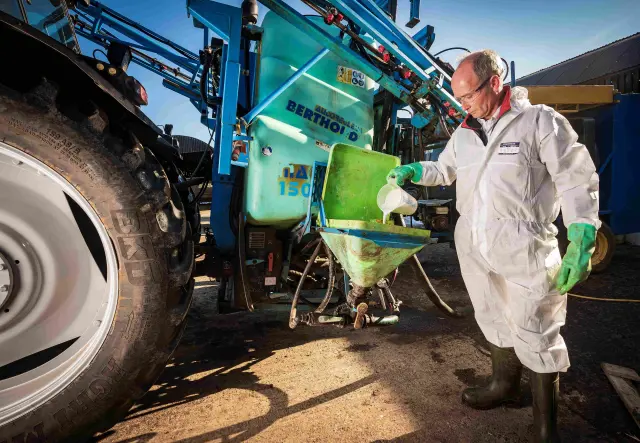
NI Water wishes to remind farmers about the important practical measures which can be put in place to protect our drinking water sources from MCPA contamination whilst also helping farm finances.
What is MCPA?
MCPA, or 4-chloro-2-methylphenoxyacetic acid, is a chlorophenoxy herbicide widely used to control broadleaf weeds and rushes on grassland. In Northern Ireland catchment areas, MCPA commonly appears in watercourses during the April–October application season and is particularly challenging and costly to remove during water treatment.
It has been shown that weed-wiping with glyphosate is more effective at killing rushes than boom-spraying with MCPA. Weed-wiping also causes less pollution as glyphosate breaks down in 3–7 days, whereas MCPA persists for 15–25 days, greatly reducing the risk of leaching into streams and reservoirs.
Practice Careful Pesticide Handling
Small drips or spills during filling, application or equipment cleaning can wash into drains and watercourses, where MCPA is highly soluble. By taking precautions—using drip trays, cleaning kits away from open drains, and disposing of containers responsibly—farmers can prevent costly contamination. NI Water and the Water Catchment Partnership stress that avoiding drips and spills protects both raw-water quality and farm-business finances, since lost pesticide is wasted product.
Plan Applications to Minimise Runoff
Timing applications for dry, calm weather and avoiding pre-rain spraying windows reduces surface runoff.
Establish Buffer Zones Around Watercourses
Leaving unsprayed margins—buffer zones—between treated fields and any nearby ditches, streams or drains prevents direct entry of MCPA into water. Even a single drop of pesticide can breach drinking-water standards up to 30 km downstream, so a 5–10 m buffer zone is a simple yet effective safeguard.
By adopting these practical measures farmers can play a pivotal role in safeguarding raw drinking-water sources from MCPA contamination.
NI Water Catchment Officer Peter Quinn commented: “It is important to remember that MCPA loss from the land represents a financial loss to the farm business in wasted product. It also poses a risk to the water environment and the plants and animals that depend on it. We all need to work together to protect our precious drinking water resources.”
ENDS
Media enquiries to the NI Water Press Office via email to press.office@niwater.com

